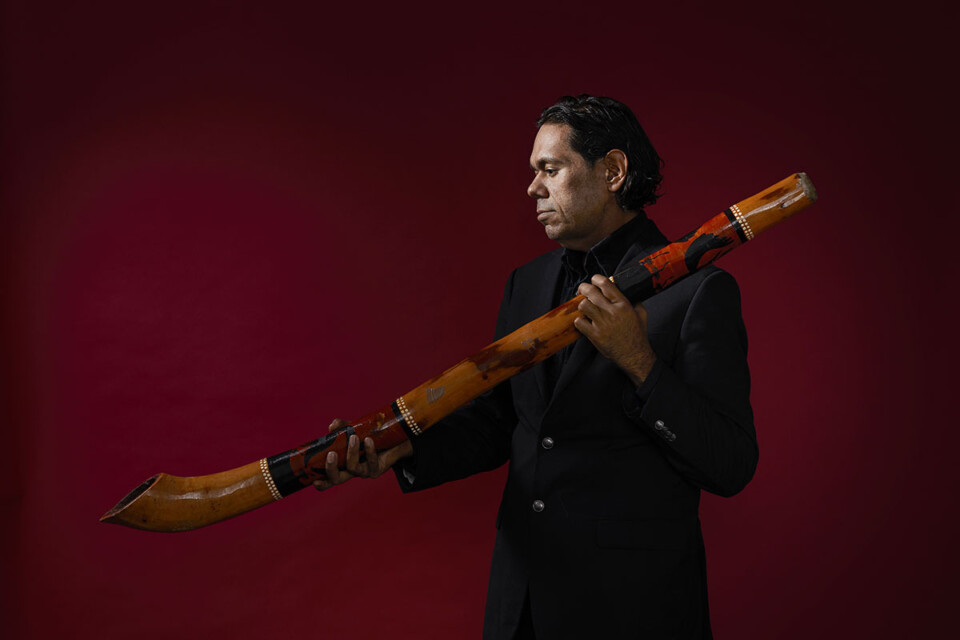1. The Yidaki is an important traditional ceremonial instrument that has been in use for thousands of years.
Traditionally from Arnhem land, the Yidaki is an important instrument with a distinctive sound which has become synonymous with Aboriginal music across the continent.
The Yidaki has been in use for thousands of years, and is likely to be the world’s oldest instrument, from the world’s oldest living culture.
2. The word “didgeridoo” is not an indigenous term
There are a range of indigenous terms for “didgeridoo”, however the actual word digeridoo was a Western creation, coined by white settlers. First nations Australians have over 50 names for this instrument depending on the tribe, and based on the instrument’s size, shape, and the sound released. A commonly-referenced name is Yidaki (also spelt Yirdaki), although strictly speaking this name refers to a specific version of the instrument that is used by the Yolngu peoples from the north.
3. Made by hollowed out eucalyptus branches
The Yidaki is naturally constructed from tree trunks hollowed-out by termites. The hundreds of channels and irregular inner surfaces of the wood created by the termites result in the unique native sound generated by the instrument. Often ceremony would be performed and the ancestral spirit of the tree would be asked permission before the trunk was taken.
4. Playing the Yidaki can result in multiple health benefits
Playing the Yidaki can have many positive health properties in relation to improvement of lung capacity due to the unique breathing technique required to play the instrument called ‘circular breathing’. This means the player simultaneously breathes in through their nose while breathing out of their mouth, continuously vibrating their lips through the rim of the instrument.
5.William Barton is one of Australia’s leading Yidaki players and composers
Composer, producer and musician William Barton is widely recognised as one of Australia’s best Yidaki players; leading the way in his fusion of traditional and extended Yidaki techniques with instruments we associate with classical music. William began learning the Yidaki from the age of seven from his uncle Arthur Peterson – an elder of the Wannyi, Lardil and Kalkadunga people. William began touring internationally from the age of 15 and performed his first classical concert with the Queensland Symphony Orchestra at 17. He has performed across the globe with the likes of the Philharmonic Orchestras of London and Berlin and won an ARIA award for Best Classical Album in 2012.
